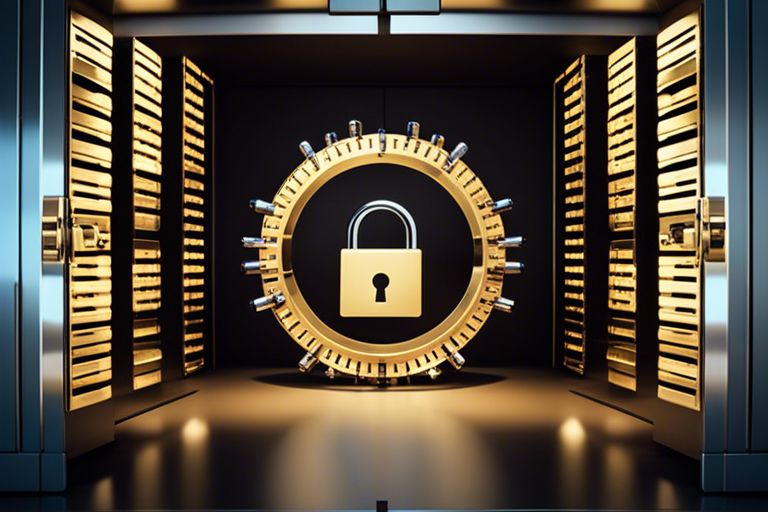You know that privacy and security are crucial when browsing the Internet. In the digital age, safeguarding your sensitive information is paramount to protect your data from prying eyes and potential threats. One of the key pillars of online security is confidentiality. It forms the foundation upon which all other security measures are built. From data protection to secure communication practices, confidentiality plays a vital role in ensuring your online safety. By utilizing tools like anonymous emails and VPN technologies, you can enhance your privacy and anonymity while browsing the web. In this blog post, we explore the importance of confidentiality in cybersecurity and provide insights into safeguarding your sensitive information for a secure online experience.
Understanding Confidentiality
Definition and Key Concepts
For a secure online experience, understanding confidentiality is crucial. Confidentiality refers to the protection of sensitive information from unauthorized access or disclosure. Key concepts include data protection, privacy measures, secure communication, and safeguarding sensitive information.
Legal and Ethical Considerations
To ensure data security and privacy, legal and ethical considerations play a vital role. It is necessary to have safeguards in place to protect confidential information. Measures such as secure data handling, information security best practices, and privacy protection should be prioritized.
Considerations should also be given to cybersecurity measures, secure transactions, and the secure storage of sensitive data to maintain confidentiality and privacy standards. Compliance with legal requirements and ethical guidelines is necessary to safeguard sensitive information.

Strategies for Maintaining Confidentiality
Secure Communication and Data Transfer
Any organization or individual prioritizing confidentiality must focus on secure communication and data transfer. With the rise of cyber threats, encrypting all communication and data exchanges is crucial to protect sensitive information. Utilizing tools like VPN services and anonymous email addresses, such as those provided by maillog.org, adds layers of security to ensure privacy.
Confidentiality in Workplace and Personal Settings
One crucial aspect of maintaining confidentiality in both workplace and personal settings is establishing clear protocols and practices. It is imperative to educate all stakeholders on the importance of safeguarding sensitive information and implementing secure data handling procedures. By incorporating privacy measures, secure communication practices, and data encryption methods, individuals and organizations can effectively protect confidential data.
It is crucial to create a culture of confidentiality in both professional and personal environments. Clearly outlining the protocols for handling sensitive information and enforcing strict data security practices can minimize the risk of breaches. By utilizing tools such as VPN services from trusted providers like Privatix and temporary email addresses from maillog.org, individuals can enhance their confidentiality measures and protect their data effectively.
Tools and Technologies for Protection
Encryption and Secure Protocols
Not all methods of securing your online activities are created equal. Any reliable security setup should begin with encryption and the use of secure protocols. Encryption ensures that your data is scrambled and can only be deciphered by authorized parties, providing a crucial layer of protection against cyber threats.
Use of VPNs and Anonymous Email Services
Protocols like VPNs and anonymous email services play a vital role in maintaining online confidentiality. By using VPN technology, you can shield your IP address and encrypt your internet traffic, safeguarding your privacy from prying eyes. Similarly, anonymous email services offer a way to receive communications without revealing your identity, enhancing your overall security posture.
Best Practices for Ensuring Confidentiality
Developing a Confidentiality Policy
Many organizations may find it vital to establish a robust confidentiality policy to safeguard sensitive information. To protect data privacy, it is crucial to define clear guidelines on handling, storing, and sharing confidential data within the organization. Developing a comprehensive policy ensures all employees understand the importance of confidentiality and adhere to best practices.
Training and Awareness Programs
One effective approach to enhancing confidentiality in an organization is through training and awareness programs. These initiatives educate employees on the significance of confidentiality, data protection protocols, and security measures. By conducting regular training sessions and creating awareness programs, organizations can ensure that their staff are equipped with the knowledge and skills necessary to maintain confidentiality.
With a focus on continuous education and awareness, organizations can cultivate a culture of confidentiality, where employees understand the value of secure information handling and are proactive in safeguarding sensitive data.
Conclusion
Hence, maintaining confidentiality is the cornerstone of ensuring security in an online environment. Protecting sensitive information, securing data, and safeguarding privacy are critical measures to prevent unauthorized access and potential breaches. By utilizing tools like temporary emails from platforms like maillog.org and VPN technologies such as Privatix, individuals can enhance their online security and anonymity. Combining these resources effectively creates a secure framework for secure communication, data handling, and information management. Prioritizing confidentiality not only safeguards personal and sensitive data but also strengthens cybersecurity practices, ensuring the privacy and integrity of online transactions and communications.

